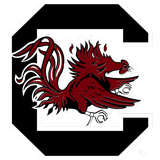
Emmert applauds student-athlete activism

SAN ANTONIO (AP) NCAA President Mark Emmert applauded student-athlete campus activism and said Thursday he's disappointed that member schools aren't hiring more women and minorities as coaches.
Emmert's remarks came during his annual speech at the NCAA convention. He pressed member schools to keep improving academics, fairness and the health and safety of student-athletes.
He didn't mention specific cases of student activism, but Emmert's remarks came two months after a boycott by Missouri football players over campus racial issues was instrumental in forcing the resignation of the school president and chancellor.
The boycott prompted a couple of Missouri state lawmakers to propose a law to strip scholarship money from athletes that refuse to play for non-medical reasons, but it was later dropped.
In a convention hall filled with hundreds of college presidents and administrators, Emmert acknowledged the ''stress and strain'' such events can cause, but said he's encouraged that athletes feel part of the fabric of their community.
''I think we're in a moment in time when there's a lot more activism on campus. And I think we're likely to see that around the country. I think that's the time we're in and I don't think that's an inherently bad thing at all,'' Emmert told reporters after his speech.
''The fact that student-athletes feel they are part of a broader community and want to voice their opinions on a variety of social justice issues, I think that's a good thing,'' he said.
South Carolina President Harris Pastides, chairman of the NCAA Division I Board of Directors, said universities should expect more campus demonstrations. His campus saw nearly 200 students stage a November class walkout over campus diversity.
''In my case, they wanted to work with us,'' Pastides said. ''If you're a college president and you remember the 60s, you knew this day would happen again. I do anticipate it's not over.''
On women and minority coach hiring, Emmert said the NCAA can't require a rule similar to the NFL that mandates minority candidates be interviewed.
''I'm concerned that we're not seeing the pipelines getting filled up. If you look at FBS football, there's not any growth in African-Americans getting coordinator positions. That's the feeder into head coaching jobs,'' Emmert said. ''Why are women not being attracted into coaching positions as they once were?''
Emmert' speech also pushed universities to address ''fairness'' for college athletes, from how much time they spend on their sport compared to academics to making sure they are advancing toward their degrees.
NCAA surveys show that 75 percent of Division I basketball players think they will someday have a professional career. A vast majority won't, Emmert said.
''What keeps me up at night ... We all know there is a large number of student athletes who have grossly unrealistic expectations of playing professional sports,'' Emmert said.
Two rule changes passed Wednesday have been a lauded as a significant step for basketball underclassmen. Starting this year, basketball players will be allowed to work out with one NBA team per year and still return to college without jeopardizing their eligibility.
They also will be allowed to enter the draft multiple times, participate in the combine. If an NBA dream isn't likely to be realized, the player gets 10 days until after the combine to withdraw and return to their college team
''We still need to help them prepare for life after sports,'' Emmert said.
